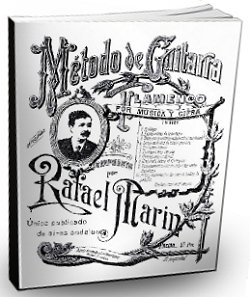|
"Alabama Rain"
Lyrics and chords
D Em D A
Lazy days in mid July, country sunday mornings
D Em Bm F#m Em A
dusty haze on summer highways, sweet magnolia calling
G F#m Em F#m
Now and then I find myself thinking of the days
Bm Em A D
When we were walking in the Ala – ba -- ma rain
D Em D A
Drive-in movies friday night, drinking beer and laughin'
D Em Bm F#m Em A
somehow things were always right, just don't know what hap-pened
G F#m Em F#m
Now and then I find myself thinking of the days
Bm Em A D D7
when we were walking in the Ala – ba -- ma rain
G A D Bm Em A D
We were only kids but then, I never heard it said
G A D Bm Em
that kids can't fall in love and feel the same
A A7
I can still remember the first time I told I loved you
D Em D A
On a dusty mid July, country summer's evening
D Em Bm F#m Em A
a weeping willow sung its lullaby and shared our se - cret
G F#m Em F#m
Now and then I find myself thinking of the days
Bm Em A D
when we were walking in the Ala – ba -- ma rain (2x)
Jim Croce Biography
Jim's musical career started when he was five years old, learning to play "Lady of Spain" on the accordion. He says, "I was the original underachiever. I'd shake that thing and smile, but I was sort of a late bloomer." He didn't really take music too seriously until 1964, while he was attending Villanova College in Pennsylvania. There he formed various bands, doing fraternity parties and playing "anything that the people wanted to hear: blues, rock, acapella, railroad music...anything." One of those bands was chosen for a foreign exchange tour of Africa and the Middle East. "We had a good time," Jim recalls. "We just ate what the people ate, lived in the woods, and played our songs. Of course they didn't speak English over there... but if you mean what you're singing, people understand."
He returned to Philadelphia and he had decided to be "serious." But it was hard to make a living playing in a band, and his previous employment experiences had lost their appeal: "I'd worked construction crews, and I'd been a welder while I was in college. But I'd rather do other things than get burned." Like most underachieving accordion players, he had a hard time finding the right other things. His determination to be serious ("I even got a pair of shoes that look like the Ace of Spades, with holes in them") led to a job at a Philadelphia R&B radio station, where he translated commercials into Soul. "I'd sell airtime to Bronco's Poolroom, and then write the spot: 'You wanna be cool, and you wanna shoot pool...(dig it).'" Increasingly frustrated, he quit to teach guitar at a summer camp ("to people who had to wear loafers 'cause they couldn't tie their shoes'") and even enlisted in the U.S. Army. He didn't have a very illustrious military career, but says he's prepared if there's ever a war where we have to defend ourselves with mops.
Back to the radio station again, briefly ("that was about the end of my seriousness"), and then he tried teaching "special education" to discipline problem students in a Philadelphia high school. Finally he decided to give his music a chance.
He'd been playing some pretty tough bars ("I can still get my guitar off faster than anyone else"), then he and his wife, Ingrid, moved to New York and began working coffeehouses. Tommy West, who had attended Villanova College with Jim, introduced them to Terry Cashman, and in 1969, Cashman and West produced their album, Jim and Ingrid. They remained on the coffeehouse circuit for a year and a half, involving themselves in the music business and collecting guitars. But, they soon became discouraged by the agitation and pressures of city life, and moved to Lyndell, Pennsylvania, where they had their son, Adrian James. Ingrid learned to bake bread and to can fruits and vegetables and Jim, like a rich lady selling her jewels, sold the guitars he had accumulated, one by one. When the guitars ran out, he worked construction again and did some studio work in New York. "Mostly background 'oohs' and 'ahhs' for commercials. I kept thinking, 'maybe tomorrow I'll sing some words.'"
His first album, You Don't Mess Around With Jim, was an instant success. Jim immediately became a top bill club and concert performer and the title song and "Operator" pulled from the album, were both highly successful singles. The friendliness and sincerity of Jim's performances have endeared him to a wide variety of audiences.
"Well," laughed Jim, "I'm glad I'm not running anymore jackhammers. It's a lot easier to have a good time. I think music should make people sit back and want to touch each other...I just hope people get a kick out of it."
Since the first album, things have been strictly uphill for Jim. "Bad, Bad Leroy Brown," which was pulled from the second LP entitled Life and Times reached the top of the national pop charts before it went Gold. Jim's latest album is called I've Got a Name and the title cut is part of the soundtrack for 20th Century Fox's new film The Last American Hero. Many other things are being planned for the unlikely hero of Philly, including appearances in films as well as more soundtrack offers.
Jim Croce - "I've Got a Name." He certainly has.
(Writer unknown, ©1973 ABC Records, Inc.)
Jim Croce Official website
|



